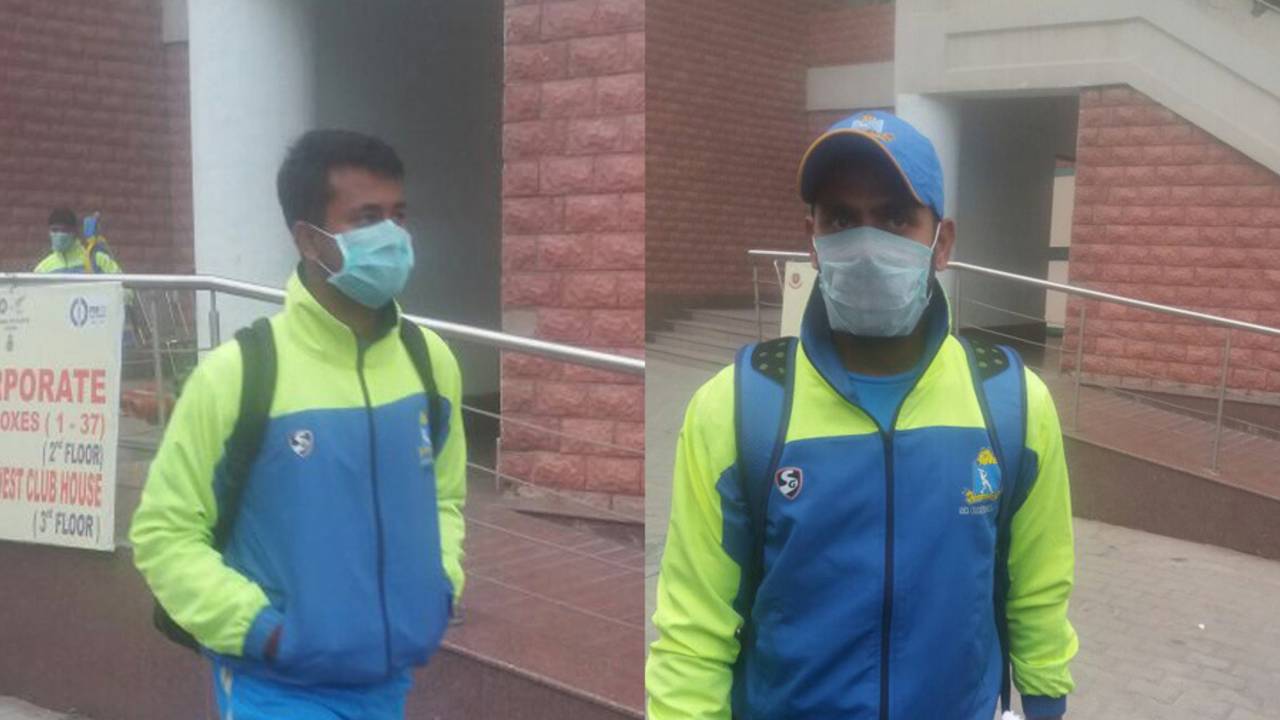Smog stops play
The rising levels of pollution in Delhi have affected the cricket too, claiming the whole day's play between Bengal and Gujarat at Feroz Shah Kotla and between Hyderabad and Tripura at Karnail Singh Stadium
Pragyan Ojha and Manoj Tiwary leave Feroz Shah Kotla with masks to counter Delhi's pollution • ESPNcricinfo Ltd
Pollution abandoned first day of play !! Ever heard that ?! #delhipollution pic.twitter.com/EiZ7FhOZpV
— Shreevats goswami (@shreevats1) November 5, 2016

